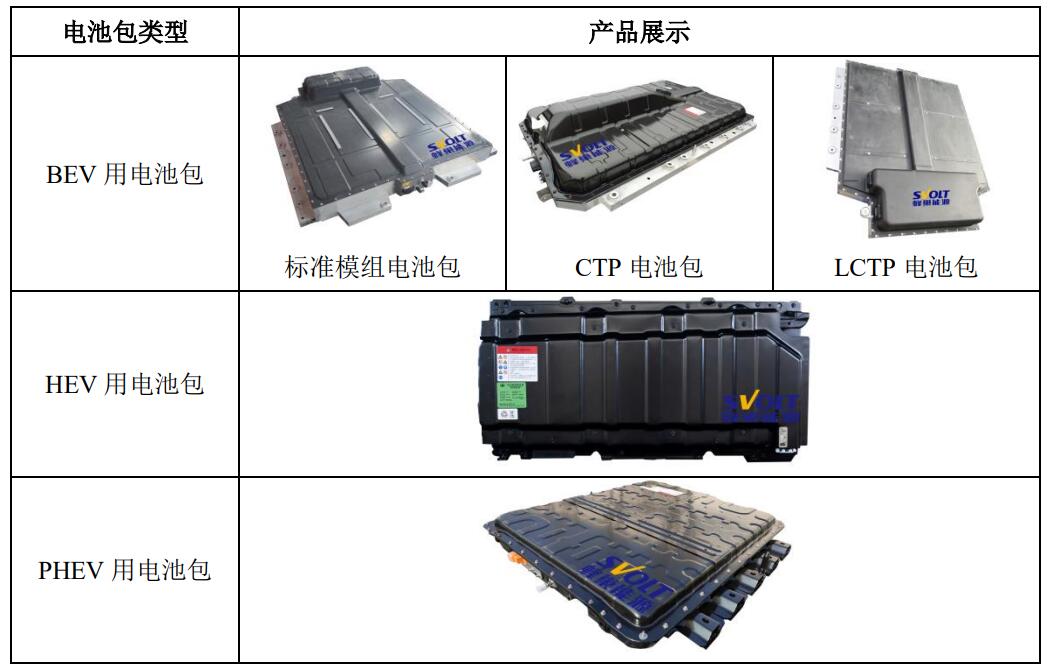In a 4C fast-charging solution, the Dragon Armor Battery has 32 percent higher pack capacity compared to the 46 series high nickel cylindrical battery, according to Svolt Energy.

(Image credit: Svolt Energy)
Svolt Energy, which was spun off from Great Wall Motor, gave its Dragon Armor Battery its real-life debut at the ongoing Shanghai auto show, after unveiling the battery late last year.
The battery maker showcased the Dragon Armor Battery at the Shanghai auto show -- which began April 18 and runs through April 27 -- with a video of a previous thermal runaway test on display.
In the test, heating triggered a thermal runaway of a cell in the middle of the pack, but no open fire was seen throughout the pack, Svolt Energy said in an April 19 post on its WeChat account.
The single cell runaway did not spread to adjacent cells, achieving the ultimate power battery safety, the article said.

Compared to the 46-series high nickel large cylindrical battery, the Dragon Armor Battery has 5 percent higher capacity on a 2C fast-charging solution, according to Svolt Energy.
On the 4C fast-charging solution, the Dragon Armor Battery has a 32 percent higher pack capacity compared to 46-series high nickel cylindrical batteries, the company said.
In addition, the highly integrated design of the Dragon Armor Battery reduces size and weight, effectively lowering battery costs, according to Svolt Energy.
The battery is compatible with a wide range of chemistries and can be carried in the A00-D class models, it said.
The strong compatibility shortens the development cycle of new models for car companies, and the versatility of the battery pack further reduces procurement costs, according to the company.
Since the announcement, Dragon Armor batteries have received multiple intent orders from customers, Svolt Energy said, without disclosing customer names.

Svolt Energy unveiled the Dragon Armor Battery at its third Battery Day event on December 15 in Changzhou, Jiangsu province, where it is headquartered.
Like BYD's Blade Battery and CATL's Qilin Battery, Svolt Energy's Dragon Armor is an innovation in battery pack structure that does not involve battery chemistry.
The Dragon Armor Battery system with lithium iron phosphate cells has improved volumetric pack efficiency to 76 percent and can have a range of more than 800 kilometers, the company said at the time.
Dragon Armor batteries with high-manganese iron-nickel cells can achieve a range of more than 900 kilometers, while such batteries with ternary cells can exceed 1,000 kilometers, Svolt Energy said.
The battery is expected to be on production models in 2023, including an SUV and a coupe in production in October 2023, Svolt Energy Chairman and CEO Yang Hongxin said at the Battery Day event.
Svolt Energy installed 0.43 GWh of batteries in China in March, ranking No. 9 with a 1.53 percent share, according to data released this month by the China Automotive Battery Innovation Alliance (CABIA).
Svolt Energy unveils Dragon Armor Battery capable of giving EVs up to 1,000 km of range
The post Svolt Energy's Dragon Armor Battery makes real-life debut at Shanghai auto show appeared first on CnEVPost.
For more articles, please visit CnEVPost.








 Svolt Energy expects to complete the development of sodium-ion batteries with an energy density of 160 Wh/kg and cycle life of more than 2,000 by the fourth quarter of 2023.
Svolt Energy expects to complete the development of sodium-ion batteries with an energy density of 160 Wh/kg and cycle life of more than 2,000 by the fourth quarter of 2023. The battery is expected to be available in production models in 2023, including an SUV and a coupe that will be in production in October next year.
The battery is expected to be available in production models in 2023, including an SUV and a coupe that will be in production in October next year. Svolt Energy plans to raise RMB 15 billion, seeking a valuation of RMB 60 billion.
Svolt Energy plans to raise RMB 15 billion, seeking a valuation of RMB 60 billion.